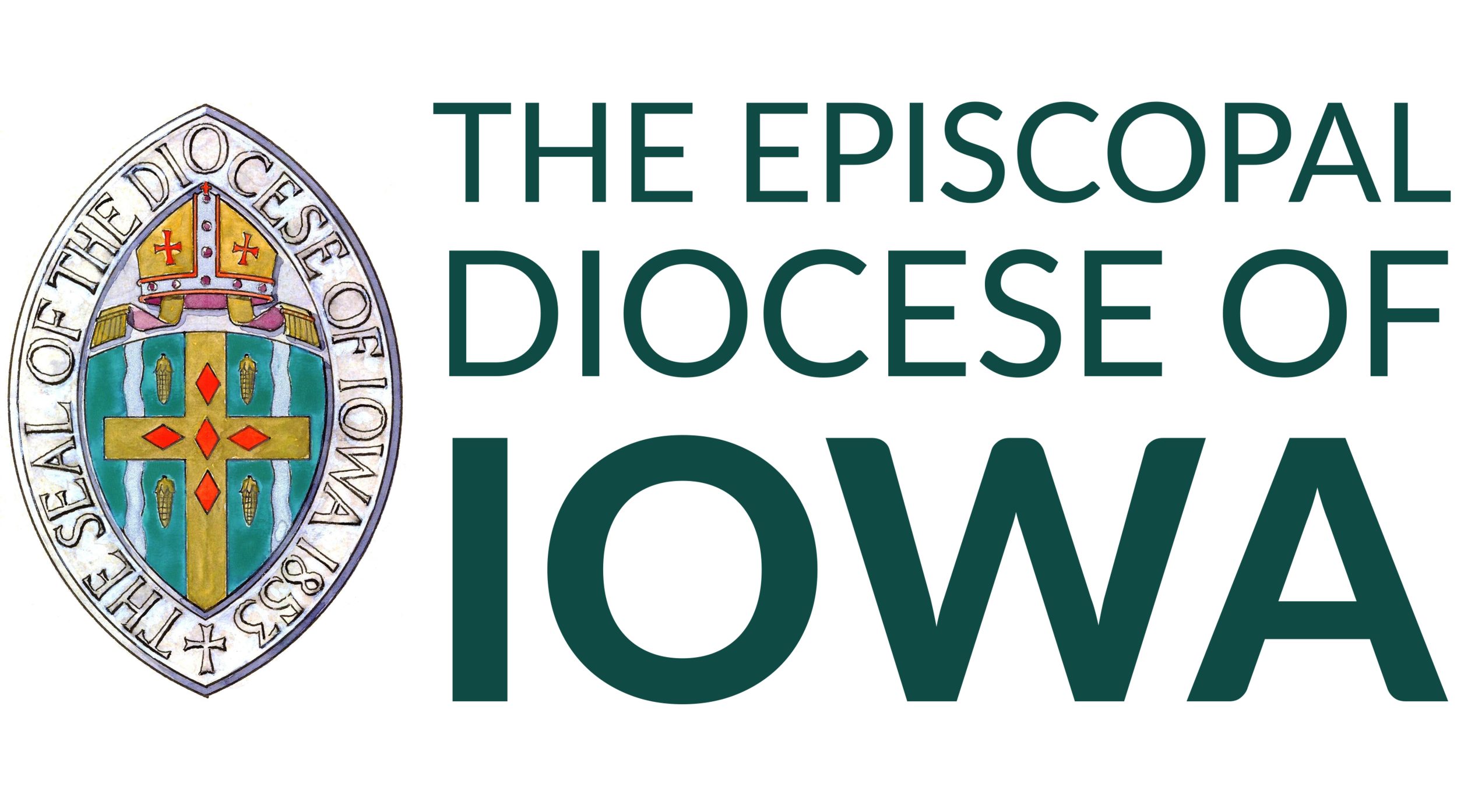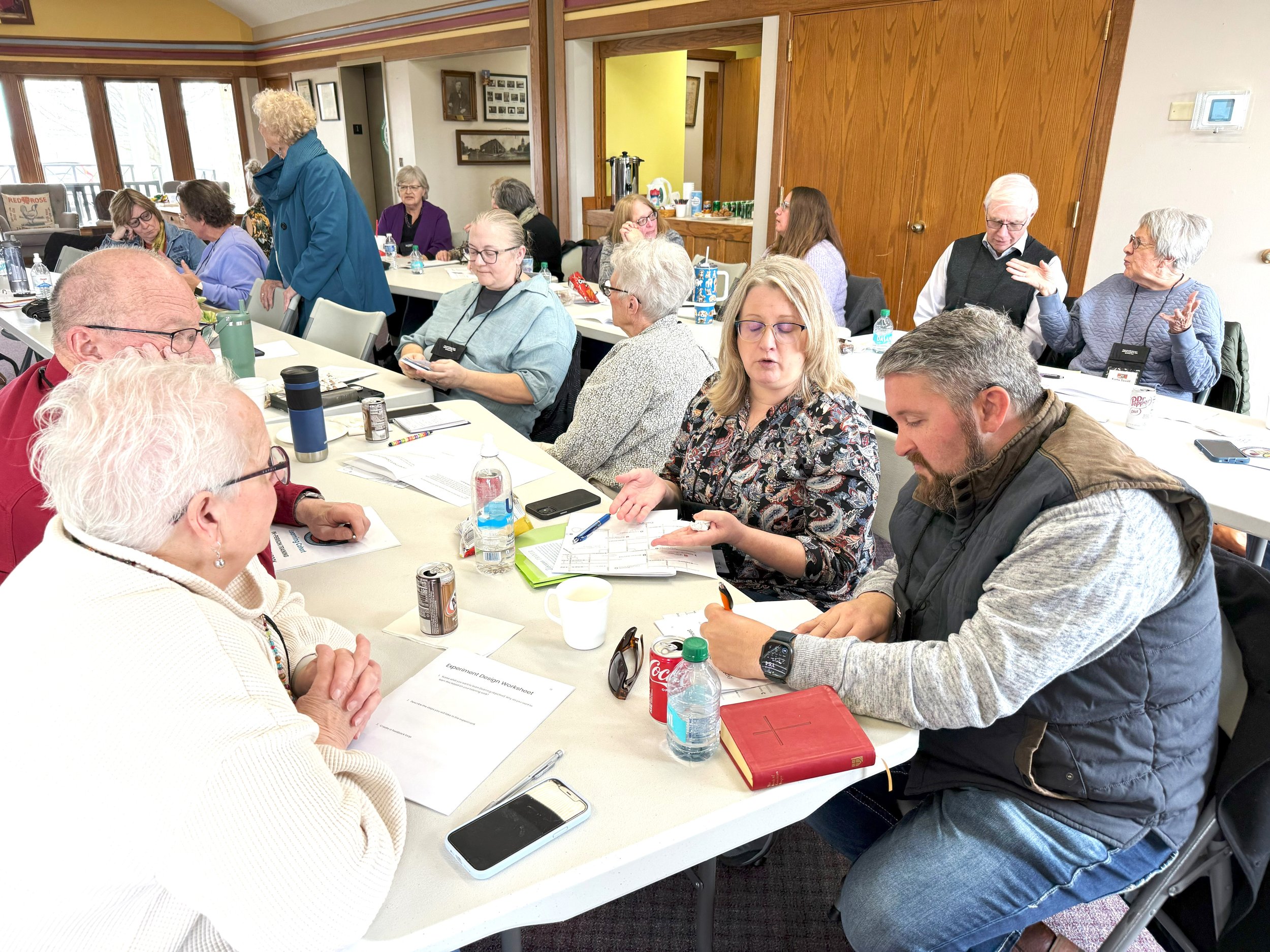Action Learning Experiments as a Spiritual Practice
Over the last seven months, the 28 congregations participating in the Regional Mission Initiative have been introduced to several tools for listening to God in new ways—in Scripture, in the spiritual stores of their members, and in their history. We are learning to get outside our comfort zones and connect with our neighbors in ways that build trust and mutual respect. This trust will give us the chance to notice ways the Spirit of God is already at work in the lives of those around us, and it will clarify how our congregations can join in the work that God is doing in and through our neighbors.
In March and April, the congregational team members were invited to spend a day discovering how they can use action learning to go even deeper and explore something God has brought to their attention from the listening work they have done and are continuing to do. They were also introduced to another listening practice, walking their neighborhood.
Unlike how churches often focus their energy on planning events or developing programs that they hope people will draw people into their building, action learning experiments are designed to help the congregation learn how to join God’s work out in the world. Experiments often involve investing our personal presence in some new places and investing in new relationships with the people around us.
“It’s really nice to see folks settling in to do the work of determining what’s next in their place. We have congregations that are intentionally looking outside themselves for the first time in a long time” the Rev. Jay Elmquist reflected, “Together, we keep asking the question, 'What is God doing here in our place that we might join?’ We’re working to keep asking those kinds of questions, instead of how to keep the lights on and staffing for services.”
The main purpose of action learning experiments is to learn new ways to be the church and to be transformed personally as followers of Jesus as we put ourselves in vulnerable positions and humbly engage our neighbors with genuine curiosity and openness. The experiments are meant to be simple, inexpensive, relatively easy to plan, and enjoyable.
An action learning experiment consists of three simple but important parts. First, we define what the team is trying to learn, hopefully a curiosity that arises out of the different ways they have been listening together and out in their community. Second, the group identifies the clear and specific steps they will take. Lastly the group creates a feedback loop to discuss and discover what happened and what they learned.
Not all the experiments will work out the way that we might hope in terms of an outcome – people we meet might not respond in ways we might want or expect. But because the true outcome we are seeking is our own learning and transformation, teams can only fail if we fail to learn anything, if we fail to try new things, or fail to stay open to the next step God might be inviting us to.
C.J. Petersen, lay RMI team member from Carroll said, “The ministry training in Winterset was a powerful reminder of our shared calling to find creative ways to reach our neighbors and communities, both within our congregations and outside our church walls. Together, we deepened our commitment to Christ’s work and left renewed in spirit and purpose.”
The RMI process itself will be cyclical and ongoing; for example, we continue to listen – to God, to our members, and to our neighborhoods even as we begin to engage in experiments. Our action learning experiments will flow from listening, as what we hear will informs what we decide to try out in our contexts. Our experiments will likely also lead to other questions and curiosities as we seek to follow the leading of the Holy Spirit and learn to be the church in new ways together. Follow along with our progress at: https://www.iowaepiscopal.org/regional-mission-initiative
Members of the Southwest Cohort brainstorm about potential action-learning experiments.
Members of the East Cohort engage in Dwelling in the Word.


